Beatles News
the Spanish movie selected for this year’s Oscars “Living Is Easy With Eyes Closed”. The movie is based on the true story of the teacher Juan Carrion, who traveled to Almeria to meet John Lennon, where he was filming “How I Won the War”. The meeting with Carrion inspired Lennon to include the lyrics of the Beatles songs on all records.
As I’m sure you know, the movie title, “Living is Easy With Eyes Closed”, comes from the second line in Lennon's song “Strawberry Fields Forever” which he wrote in Almeria during the filming.

We would really appreciate your help in letting Beatles fans know that the film will be released in February in the US. We would also like to come back to you later on with a link to the Pat Metheny and Charlie Haden sound track to the film, which the fans may like.
(CNN) -- It would have been the ultimate supergroup: the Beatles, the Rolling Stones and Bob Dylan.
And it was actually proposed, says engineer and producer Glyn Johns, according to a piece in Rolling Stone.
According to Johns' new memoir, "Sound Man," while traveling with Rolling Stone founder Jann Wenner he ran into Dylan in New York sometime in 1969. The singer had just done an interview with Wenner and started peppering Johns with questions about the two bands.
Johns had worked with the Beatles in early 1969 on the "Get Back" sessions -- later to become "Let It Be" -- and the Stones on 1968's "Beggars Banquet," so he had recent experience with both.
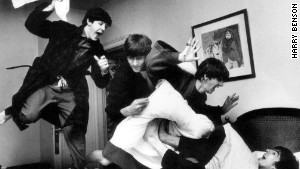
Beatles photographer shares
Glyn Johns is a walking rebuttal to the maxim that if you remember the 1960s, you weren't there.
He was there — overseeing the Rolling Stones' first recording session, arranging the Beatles' rooftop concert, reeling from the first blast of Led Zeppelin — 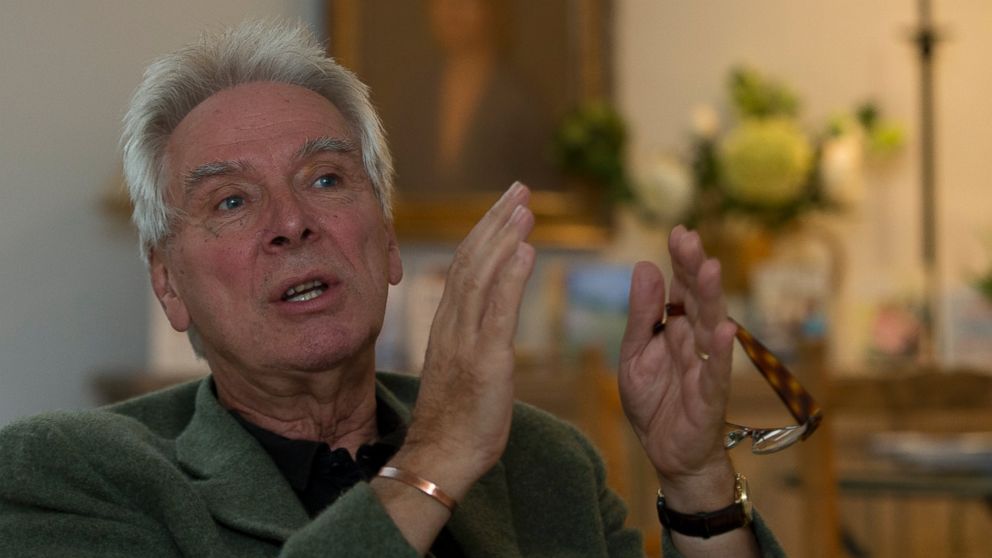 and he remembers everything.
and he remembers everything.
Johns, a recording engineer and producer, began his career at the start of the 60s, when studio technicians still wore white lab coats. He went on to work with the Stones, the Small Faces, the Steve Miller Band, The Kinks, The Who, the Eagles and many more, helping to define a certain classic-rock sound.
"I'm a bit of a purist," said Johns, whose memoir, "Sound Man," is being published Thursday in the U.S. by Blue Rider Press. It's out in Britain next month.
Johns recalled how after the Beatles released the "Sgt. Pepper" album in 1967, Mick Jagger took him into a cafe near London's Olympic Studios.
"He said 'You've got to come up with some new sounds.' Because 'Sgt. Pepper' had reinvented the wheel," Johns explained. "And I said 'Oh really? Have I? I thought I was here to record you playing.' And that's really always been my attitude.""
He says over the course of two days, he sat and played and cried and sang at Lennon's side. It was a friend to took the video of Picco gently playing "Blackbird."
"It's a song I really love and I was looking to play songs that had kind of that melodic movement that might trigger something in him," Picco said.
It was also a song that as a Beatles fan, Picco hoped he would be able to play for Lennon as he grew up.
'
Sir Paul McCartney was paid more than $1 million to perform at billionaire Ron Baron’s New York investment conference.
McCartney and Carrie Underwood, who also collected a large fee, headlined Baron Capital’s investors meeting at the Metropolitan Opera House Friday.
The stars played to 4,000 investors after a performance from the cast of “Show Boat,” including Vanessa Williams.
A source said, “It would have cost $2 million to get both McCartney and Underwood, and that’s before you’ve paid for their bands.”
While the artists’ reps declined to comment, a spokesman for Baron Capital said, “The entire event was paid for by Baron Capital. It was fabulous. Paul McCartney put on a great show. There was not one person sitting down in the whole place.” He declined to say how much the performers were paid.
Ringo Starr & His All Starr Band reveal a February-March run that includes shows in South America, Mexico, Puerto Rico and Dominican Republic as well as in the U.S. Destinations include Orlando, Rio de Janeiro, San Francisco and Las Vegas.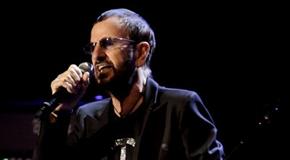
For this outing Ringo will be fielding the same All Starrs he’s been working with the last few years – Steve Lukather, Richard Page, Gregg Rolie, Todd Rundgren, Gregg Bissonette and Warren Ham. Although the former Beatles drummer used to take out a different musicians with each tour, he loves performing with the 2012 lineup.
“We have so much fun playing together,” Ringo said. “We don’t want it to end!”
I invited Scott Freiman to dinner for a few reasons, but mostly because he gets paid to talk about rock ‘n’ roll. Scott, the CEO of a tech startup called Qwire(an intentional misspelling of choir), taught a class at Yale University on the music of the Beatles and lectures widelyon the topic. During a dinner with some 15 tech founders and investors, I asked Scott about the story behind Decca Records turning down the Beatles (an epic miss!) and subsequently overpaying to sign another young rock group.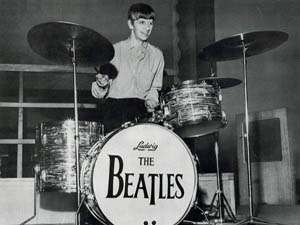
Scott explained that an executive at Decca, who had stayed in touch with Beatles’ guitarist George Harrison, asked George what other hot young acts the label should be considering. George mentioned a young blues group, admonishing: “You blew it with the Beatles, don’t miss these guys.” That group was, of course, the Rolling Stones. The Stones went on to record more than a dozen records with Decca, including Beggars Banquet and Let It Bleed, which are often classed among the 100 greatest rock albums of all time.
Why does this anecdote belong in a column about startups and venture capital? Because it’s all about deal flow. The beautiful universality of Decca transforming humiliating loss into lucrative victory is that sticking with the one that got away works.
Dylan then dropped a bomb. "He said he had this idea to make a record with the Beatles and the Stones," John writes. "And he asked me if I would find out whether the others would be interested. I was completely bowled over. Can you imagine the three greatest influences on popular music in the previous decade making an album together?"
Johns quickly began working the phones. "Keith and George thought it was fantastic," he writes. "But they would since they were both huge Dylan fans. Ringo, Charlie and Bill were amicable to the idea as long as everyone else was interested. John didn't say a flat no, but he wasn't that interested. Paul and Mick both said absolutely not."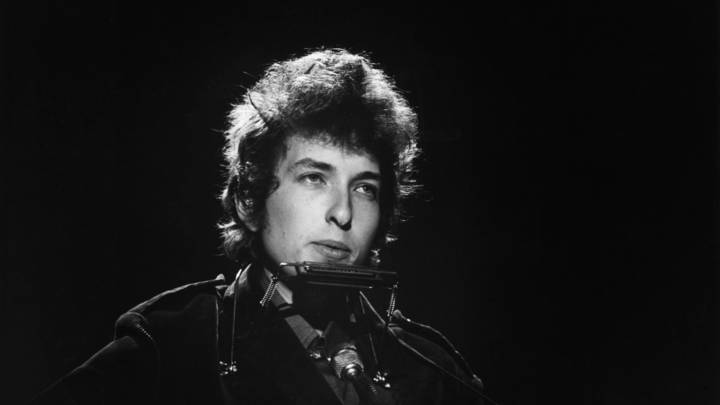
Needless to say, the plan didn't go forward. "I had it all figured out," writes Johns. "We would pool the best material from Mick and Keith, Paul and John, Bob and George, and then select the best rhythm section from the two bands to suit whichever songs we were cutting. Paul and Mick were probably, right, however I would have given anything to have given it a go."
I shared the same planet with the Beatles for one year, three months and two days. That was how old I was when John Lennon died, not that I learned that until nearly a decade later. By the time I first encountered the group, courtesy of the movie "Yellow Submarine," it had long since been reduced to a thriving industry and a beloved — but irrevocably gone — part of the past.
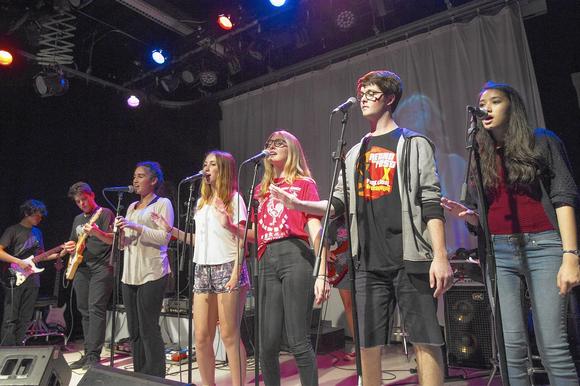
We still perform Sophocles' plays and trek to the Egyptian pyramids after thousands of years, so I have no reason to doubt that the Beatles' music will have similar staying power. Just this summer, my wife and I visited Liverpool and took the Magical Mystery Tour bus ride, which guides tourists by the childhood homes of all four Beatles and points out historic points of interest — this street where two of the band members walked to school, for example, or this trail where one of them rode his bike.
The Beatles were not infallible musically (even the most diehard fan can probably name a least favorite song or album) and were all too fallible as human beings. Biographers have prospered for decades with accounts of Lennon's temper, Paul McCartney's bossiness, George Harrison's moodiness and Ringo Starr's substance abuse. We have been told countless times — including by the Beatles themselves — that they were men and not gods.
His two predecessors in the role have both had number one singles on the back of their campaigns and the firm's commercials have spawned numerous hits.
Tom - who landed the Critics' Choice prize at the Brits last year - is performing a version of the song Real Love, which was a number four hit for The Beatles in March 1996.
The track began life as a solo demo by John Lennon, written in his New York home in the Dakota Building in 1977. When Sir Paul McCartney, George Harrison and Ringo Starr were looking for singles to include in their Anthology project, they provided new backing for Lennon's voice to overhaul the rough tape but it stalled in the charts after Radio 1 failed to add it to the station's playlist.
It has now been recorded by Tom to accompany the ad, which will be screened for the first time tomorrow, with high expectations that the John Lewis connection will propel it to the top of the charts.
The retail firm's ads for the past two years have both generated number one singles - Gabrielle Aplin with The Power Of Love in 2012 and Lily Allen with Somewhere Only We Know last year.
Until now, 23-year-old Tom has achieved just one top 40 single, making it to number 10 with his single Another Love last year although his debut album did go on to top the charts.
The director of the ad Dougal Wilson - who is now on his seventh John Lewis commercial - has always taken a keen interest in the music used in his work and has a side career creating quirky videos for acts such as Coldplay, Bat For Lashes, Will Young and Jarvis Cocker.
Other hits from his John Lewis ads have included Fyfe Dangerfield's version of Always A Woman.



